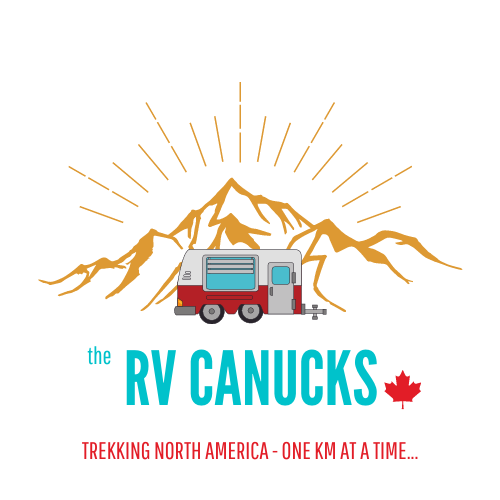Bare-Bones RV Essentials: The Must-Have Tools for Every New RVer | Ep. 53

Are you overwhelmed by the endless list of RV accessories and gadgets out there? You’re not alone. As a new RVer, it’s easy to feel pressured into buying every flashy device on the market. But the reality is, you only need a handful of essentials to stay safe, comfortable, and worry-free on the road. Below, we’ve compiled the must-have items that will protect your investment—and your wallet—when you hit the highway.
1. Extension Cord
(Choose the Right Amperage for Your Trailer)
- Why You Need It: A reliable extension cord ensures you can hook up to power sources that aren’t right next to your campsite. If you have a 30-amp trailer, opt for a cord that can handle 30 amps. That way, you’ll avoid overheating, electrical malfunctions, or power interruptions.
- Pro Tip: Get a quality cord rated for outdoor use to stand up to weather and wear.
2. Electrical “Dog Bone” Adapter
(30–15 Amp)
- Why You Need It: Sometimes, you’ll encounter only a 15-amp outlet at a campsite or friend’s driveway. A dog bone adapter allows you to convert that 15-amp outlet to your 30-amp cord safely and efficiently.
- Pro Tip: These adapters are small and easy to store, so keep one on board at all times.
3. Surge Protector
- Why You Need It: Power surges or faulty campground pedestals can spell disaster for your RV’s electrical system. A surge protector acts as your first line of defense, saving you from potentially costly repairs.
- Pro Tip: There are basic and advanced versions (with diagnostics); choose one that fits your budget but don’t skip this item altogether—it’s worth every penny in the long run.
4. Drinking Water Hose
- Why You Need It: A specialized RV drinking water hose is made from materials safe for potable water, ensuring your family’s health and comfort.
- Pro Tip: Hoses labeled “RV/Marine” are typically free from harmful chemicals like lead or BPA, so always look for that seal.
5. Water Pressure Regulator
- Why You Need It: Not all campsites regulate water pressure the same way. High water pressure can damage your RV plumbing, leading to leaks or busted pipes.
- Pro Tip: A simple brass or stainless-steel regulator will do the job. Some even have a gauge, allowing you to monitor the pressure accurately.
6. Inline Drinking Water Filter
- Why You Need It: Water quality varies from campground to campground. An inline water filter ensures you have clean, odor-free water for cooking, cleaning, and drinking.
- Pro Tip: Replace these filters as recommended by the manufacturer (usually every few months) to keep water tasting fresh.
7. Sewer Hose
- Why You Need It: Proper waste disposal is non-negotiable. A high-quality sewer hose prevents unpleasant surprises like leaks or nasty spills at the dump station.
- Pro Tip: Go for a hose that’s both durable and collapsible for easy storage. Many come with convenient support systems and attachments.
8. Clear Sewer Elbow
(With or Without Black Flush)
- Why You Need It: A clear elbow lets you visually monitor when your tank is flushed clean, making the dumping process more efficient.
- Pro Tip: Some elbows come with a built-in black tank flush, so you can attach a hose and rinse out the tank more thoroughly.
9. Disposable Gloves
- Why You Need Them: Protect your hands from germs and unpleasant odors when handling hoses and hookups.
- Pro Tip: Go with a box of disposable nitrile or latex gloves. It’s a small investment to keep things sanitary.
10. Leveling Blocks
- Why You Need Them: Keeping your RV level is critical—for both comfort and the proper function of appliances like the fridge.
- Pro Tip: Plastic interlocking blocks are lightweight and easy to use. Always store them in an accessible compartment so you can adjust on the fly.
11. Wheel Chocks
- Why You Need Them: Wheel chocks prevent your RV from rolling or shifting when parked, providing an extra layer of safety—especially on uneven terrain.
- Pro Tip: Use them in tandem with your leveling blocks. Always place them on both sides of at least one wheel.
12. Torpedo Level
- Why You Need It: Guesswork can lead to imbalance and stress on your RV’s frame. A small torpedo level helps you quickly gauge if your rig is pitched or tilted.
- Pro Tip: Place it on a flat surface inside your RV (like the floor or countertop) to get an accurate reading.
Bonus: Assorted Fuses
- Why You Need Them: Electrical issues can happen at the most inconvenient times. Having an assortment of fuses on hand lets you swap out a blown fuse instantly rather than waiting for a store to open.
- Pro Tip: Check your owner’s manual for the fuse types your RV needs and keep them labeled for quick identification.
Final Thoughts
Equipping yourself with these essential tools ensures you’ll have a solid foundation for safe, budget-friendly RV adventures. Forget the countless bells and whistles; sticking to these basics will save you time, money, and frustration down the road. So grab these must-haves, hit the highway, and get ready to enjoy the freedom of the open road—without the stress or overspending. Safe travels!
About The Author
Related Posts
The Local’s Guide to Elora Gorge Conservation Area
Whether you’re a weekend warrior or a cross-country road-tripper, Elora Gorge…
Are American Campers Still Welcome in Canada? | Ep. 56
Every now and then, a message from a listener stops us in our tracks—and…
Error: API requests are being delayed for this account. New posts will not be retrieved.
There may be an issue with the Instagram access token that you are using. Your server might also be unable to connect to Instagram at this time.


